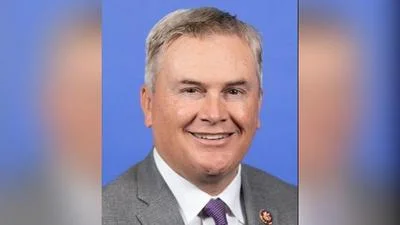Congresswoman Marcy Kaptur (D-OH), the Chair of the Energy, Water Development, and Related Agencies Appropriations Subcomittee, delivered the following remarks at the Subcomittee's hearing on "Energy Outlook and Trends":
Good morning. The Subcommittee will come to order as we begin our first hearing in what promises to be a very busy, and I hope productive, year. I’d like to welcome our new and returning members to the subcommittee. We are thrilled to have each of you representing very unique and diverse segments of America’s landscape.
Energy is essential to sustaining life on earth, to driving our economy and the millions of jobs associated with it, and to assuring our freedom. We begin our work this Congress by looking at how much energy out nation produces and consumes currently, how that has changed over the last five decades, and what prospects look like for the future.
After World War II, the U.S. began consuming more energy than we could produce domestically. Our nation increased imports of energy, creating dangerous economic vulnerabilities and strategic dependencies on other countries.
The harsh reality of that dependency struck our homeland hard with the Arab oil embargoes of the 1970’s. Our economy was walloped by America’s reliance on imported oil. President Carter’s foresight, along with congressional leadership, created the Department of Energy in 1977 to propel our nation on a challenging path to become energy independent.
Investing in research and development has been foundational to that strategic objective, but we have just begun to set a path toward permanent energy security. For example, DOE helped develop the drilling and extraction technologies credited for the recent growth in domestic oil and gas production. And today, our nation produces over 90% of our current energy needs as a result of progress on all energy horizons.
There are new challenges to meet the goals of energy security and sustainability, including:
* Increasing demand from enormous world population growth;
* Continuing industrialization globally;
* Depletion of finite, traditional sources of energy; and
* The consequences of environmentally damaging energy sources, including fossil fuels.
Fortunately, a sustainable energy supply and clean energy vision combines perfectly with the need to address the climate crisis. The future of our planet ecosystem and the lives of billions around the globe are depending on a shared vision of a livable future.
DOE, with the finest scientists in the world, has been driving innovation and partnering with the private sector to achieve continuing and significant reductions in the cost of clean energy. For example, First Solar - with more than 17 gigawatts of cadmium telluride solar modules sold worldwide - was born in my district at the University of Toledo, thanks to the genius of Dr. Harold McMaster and Dr. Norm Nitschke. This was made possible by a partnership with DOE.
So, how do we achieve the interdependent goals of energy independence, reducing pollution, and creating jobs? We deliver new technologies that are better and cheaper than their 20th century alternatives.
That means we must provide robust, stable federal support for energy R&D at the DOE. This won’t be easy-we are still facing sequestration with no budget deal in place for the next two years yet-but I am committed to working to ensure continued progress in these important areas.
In closing, our nation must keep investing in energy solutions, making them better and more affordable, reaching more people in more places. I look forward to hearing from our expert witnesses who can frame the context of our work. Let us now turn to our able Ranking Member Mike Simpson for his opening statement.
Source: U.S. Department of HCA









